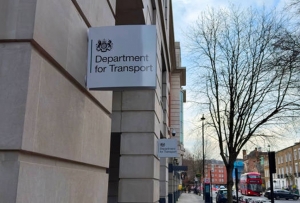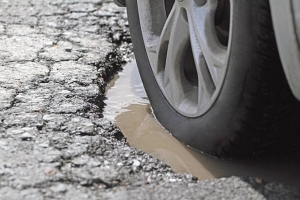Test Owner
Building Warehouse Resilience Ahead of Peak Trading
As the retail calendar edges towards its busiest spell, warehouse operations are bracing for the sharp spike in activity brought by Black Friday, Cyber Monday and Christmas. These trading peaks place extraordinary pressure on logistics networks, pushing automated systems well beyond their everyday limits. For operations managers, the key question is whether their technology can cope – and if not, how best to strengthen it.
The cost of failure at these moments is high. Any breakdown in automation, or the need to revert to manual processes, slows order fulfilment just when speed is most critical. This not only disrupts revenue flow but also damages customer confidence. Resilient automation is therefore no longer optional; it is an operational necessity. A system engineered to withstand fluctuating demand provides predictable capacity, reduces costly emergency fixes and supports long-term business growth.
Designing with variability in mind is essential. Systems should be stress-tested at higher-than-normal volumes during design stages, with modular layouts allowing sections to run independently if issues arise. Intelligent load management helps avoid local bottlenecks, while redundancy across physical routes, control systems and communication networks reduces single points of failure. These design features create the foundation for stability under pressure.
Preparation, however, is just as important as design. Warehouses should simulate stress conditions well ahead of peak season, testing throughput, backup systems, data loads and recovery from outages. By validating systems under such scenarios, operators can be confident in their ability to maintain performance during critical periods. In a volatile supply chain environment, automation resilience has become a defining competitive advantage.
Selby MP Keir Mather Joins Department for Transport Team
Selby MP Keir Mather has been appointed Parliamentary Under-Secretary of State at the Department for Transport (DfT) in Prime Minister Keir Starmer’s latest cabinet reshuffle, following the exit of former deputy leader Angela Rayner. In his new ministerial role, Mather will oversee freight and border policy, as well as work on decarbonisation and the rollout of electric vehicles.
Mather first entered Parliament in 2023 after winning the Selby and Ainsty by-election, becoming the youngest MP at just 25. He later secured the newly defined Selby seat at the 2024 General Election with a strong majority. Sharing his reaction online, Mather described his appointment as a “privilege,” adding that ensuring the country keeps moving was vital to supporting economic growth.
Transport Secretary Heidi Alexander welcomed him to the team, saying she was “delighted” to have him join the department. His appointment strengthens the DfT as it faces ongoing challenges around sustainable transport, supply chains, and the shift to low-emission vehicles.
Industry leaders have also responded positively. Richard Smith, Managing Director of the Road Haulage Association (RHA), congratulated Mather on his appointment and noted the importance of his new brief to the freight sector. He also highlighted the value of maintaining strong working ties with other DfT ministers, including Simon Lightwood MP and Lilian Greenwood, who will take responsibility for local transport.
Councils Urged to Undergo Training to Prevent Potholes
The RAC and the Road Surface Treatments Association (RSTA) are calling on ministers to make training on preventative road maintenance compulsory for local authorities, in a bid to address the UK’s worsening pothole problem. They argue that councils are too often relying on expensive resurfacing projects rather than applying low-cost treatments that could prolong the life of roads.
The RSTA says sealing road surfaces at an early stage can stop water damage and extend durability, yet many councils wait until potholes appear before replacing entire layers of asphalt – often more than a decade after a road was first laid. The RAC’s analysis shows preventative maintenance is in sharp decline: in 2023/24, half of England’s highway authorities carried out none on A roads, and more than a third failed to use it on smaller roads.
RSTA chief executive Mike Hansford said a shortage of knowledge within councils was partly to blame, citing retiring engineers and gaps in training courses. He described a “knowledge gap” that has led to misconceptions and reluctance to adopt long-term solutions. “We need government to require training for those authorities still ignoring preventative maintenance,” he said.
Simon Williams, RAC’s head of policy, added that mandatory training would ensure the government’s £6.4bn road investment delivers value. By moving away from reactive patch-ups and resurfacing only when roads reach the end of their lifespan, he argued, councils could deliver safer, smoother and longer-lasting roads for drivers.
Haulage Industry Faces Alarming Loss of Drivers
The Road Haulage Association (RHA) has revealed that more than 117,000 heavy goods vehicle (HGV) drivers have left the profession in the past year, raising fresh fears over the resilience of the UK’s supply chains. The organisation stressed that the departures are not confined to those reaching retirement age but also include a significant number of drivers in their 30s and 40s.
The RHA report highlights a mix of pressures behind the exodus. High insurance premiums and costly training continue to deter both new and returning drivers, while the withdrawal of government-funded bootcamps has closed off an affordable entry route into the industry. With operators already working on razor-thin margins, the association argues that the profession has become increasingly unattractive to both recruits and experienced drivers.
Managing director Richard Smith said wage rises alone cannot address the crisis. He urged government and industry leaders to deliver a coordinated plan, warning that the shortage is now at levels “unseen since the pandemic”. He added that many qualified drivers are leaving because they feel the system is stacked against them, with lapsed Driver Qualification Cards (DQCs) pointing to long-term disillusionment.
The report concludes that structural issues lie at the heart of the problem, with decades of cost-cutting leaving hauliers vulnerable. Smith called for investment in affordable training, meaningful support for employers, and recognition of logistics as a cornerstone of the national economy. “We must build a system where HGV driving is seen as a respected career choice for the future,” he said.
Dartford Crossing Price Hike Sparks Anger as Traffic Remains Unchanged
Fresh data has cast doubt on government claims that the steep rise in Dartford Crossing charges would help cut congestion. From 1 September, the cost for cars, motorhomes and small minibuses jumped from £2.50 to £3.50, while HGVs now face £8.40 tolls – a 40% increase. Ministers argued the move was designed to “manage traffic levels,” but motoring groups say the figures show little has changed, branding the increase nothing more than a cash grab.
Figures shared by telematics firm GeoTab show that on the first day of higher charges, more lorries actually crossed than the week before, while overall traffic levels remained in line with August. Average crossing times also rose slightly, with drivers facing longer delays on both the Queen Elizabeth II Bridge and the northbound tunnels. The data suggests haulage companies are simply absorbing the higher costs, with no evidence that vehicles are shifting to cheaper off-peak travel.
Critics including the AA and RAC Foundation have condemned the decision, describing it as an “unjustified tax on movement.” They argue that with no realistic alternative routes east of London until the Lower Thames Crossing opens – at the earliest in 2032 – motorists and freight operators are being unfairly penalised.
The Dartford Crossing, linking Kent and Essex, carries up to 180,000 vehicles a day. Campaigners point out that the bridge was paid off more than two decades ago, yet drivers continue to face escalating charges. Local leaders warn that the move will only increase costs for businesses and, ultimately, consumers.
Campaign Aims to Boost Motorway Safety Around HGVs
A new road safety campaign has been introduced to help drivers navigate motorways more safely, especially when travelling near heavy goods vehicles (HGVs). The initiative, developed by National Highways in collaboration with RED Driver Training, is aimed at both recently qualified motorists and those with years of experience behind the wheel.
The campaign underlines the dangers of driving close to lorries, pointing out that HGVs have significant blind spots. These include areas directly in front of the cab, immediately behind the vehicle, and diagonally behind the driver on both sides. Motorists are being reminded not to drive too close, to avoid lingering alongside lorries, and to always position themselves where they can be seen by the HGV driver.
The launch comes as thousands of new drivers take to the roads during late summer, with official figures showing more than 68,000 passed their test in August last year alone. Worryingly, one in four serious or fatal accidents involving HGVs involves a driver under the age of 30. National Highways said greater awareness of lorry blind spots and road positioning could help reduce risks significantly.
Colin Stevenson, road safety lead at National Highways, stressed that “understanding how to share the road with large vehicles is vital.” RED Driver Training’s CEO, Seb Goldin, added that extra motorway practice with an instructor could be invaluable for learners and newly qualified drivers in building confidence and experience.
Royal Mail Rolls Out Solar-Powered Postboxes Nationwide
Royal Mail has confirmed plans to introduce 3,500 redesigned postboxes fitted with solar technology, following a pilot earlier this year in Hertfordshire and Cambridgeshire. The company describes the move as the most significant update to its iconic red postboxes in 175 years, aimed at making it easier for customers to send and return parcels.
The upgraded boxes include a barcode scanner and a solar-powered drawer, allowing parcels up to shoebox size to be posted directly, alongside the usual letter slot. Customers using the Royal Mail app can also obtain proof of posting and track their items, bringing parcel services in line with modern shopping habits. The solar panels are positioned to face south to maximise efficiency, powering the new digital functions without affecting traditional letter services.
The rollout will begin in cities such as Manchester, Edinburgh, Nottingham, Sheffield and Sunderland, before expanding across the UK in the coming months. Jack Clarkson, managing director at Royal Mail, said the changes reflect the ongoing rise in online shopping and second-hand marketplaces: “With a postbox within half a mile of almost every household, we already offer the most convenient parcel network in the country.”
Alongside the new design, Royal Mail continues to expand its wider network of parcel services. Customers now have access to more than 23,500 drop-off and collection locations, including parcel lockers, Post Office branches, Collect+ stores, and Royal Mail customer service points, in addition to standard postboxes.
DP World Unveils Low Carbon Trucking Initiative at UK Ports
DP World has introduced a new Low Carbon Truck Programme (LCTP) at its London Gateway and Southampton terminals, in what it calls a first for the UK logistics sector. The scheme, developed in partnership with Certas Energy and New Era Fuels, will allow haulage firms using the ports to switch to hydrotreated vegetable oil (HVO), a renewable alternative to diesel that can cut emissions by up to 85%.
With over 4,000 truck movements through its sites each day, DP World hopes the initiative will encourage at least 500 vehicles to transition to HVO during the pilot, which runs until 2027. The programme is intended to act as a stepping stone towards the longer-term ambition of fully electric HGV fleets, which would eliminate tailpipe emissions entirely.
John Trenchard, DP World’s vice president for sustainable supply chains, said the move could help cut more than 30,000 tonnes of carbon dioxide annually if widely adopted. He described the initiative as a major step in tackling Scope 3 emissions for cargo owners and freight forwarders, adding that it complements the company’s existing sustainability programmes.
The scheme also includes a full day of carbon literacy training to equip hauliers with knowledge on low-carbon operations. Funded through DP World’s Energy Transition Contribution, the project has been welcomed by the Road Haulage Association, which said HVO provides operators with a practical interim route to reducing emissions on the path to net zero.
Safety Warning for New Drivers Sharing Motorways with HGVs
With thousands of newly qualified drivers set to join the nation’s motorways this summer, National Highways and RED Driver Training are reminding motorists of the importance of staying safe around heavy goods vehicles (HGVs). August is traditionally one of the busiest months for test passes, with nearly 70,000 drivers gaining their licences in August 2024 alone. But while excitement builds for summer trips and first motorway experiences, figures show drivers under 30 account for one in four serious or fatal collisions involving HGVs.
To reduce risks, the campaign highlights the importance of knowing HGV blind spots and practising safe driving habits. Motorists are urged to overtake steadily and avoid cutting back in too soon, to keep a safe distance rather than tailgating, and to stay visible by signalling clearly and avoiding blind spots. These simple steps, experts say, can make a vital difference in preventing accidents.
Research by National Highways and RED Driver Training found that despite a 2018 law change allowing learners on motorways with instructors, more than half of new drivers had never driven on a motorway before passing their test. Two in five also admitted to feeling anxious when near lorries, showing the need for greater preparation.
Colin Stevenson of National Highways said many young drivers will be experiencing motorways for the first time this summer and urged them to give large vehicles space and respect. RED’s CEO, Seb Goldin, added that additional training with instructors can help new drivers build the skills and confidence needed to share the road safely with HGVs.
UK HGV Registrations Fall as Zero-Emission Market Slowly Expands
New figures from the Society of Motor Manufacturers and Traders (SMMT) reveal that the UK’s heavy goods vehicle (HGV) market shrank by 11.2% in the second quarter of 2025, with just 10,185 new registrations recorded. Tractor units, which continue to account for more than 40% of the sector, slipped by 8.1% to 4,295 vehicles. However, the sharpest fall was seen in box vans, which plummeted by 33.1% to only 905 registrations. Demand also weakened for tippers and curtainsiders, down 19.6% and 24.2% respectively.
One notable exception was refuse collection vehicles, which bucked the trend with an 11.4% rise, reaching 614 units. While overall volumes declined, zero-emission trucks saw significant growth, with 183 new models registered in the first six months of 2025. This marks a 59.1% increase compared with the same period last year, although they still represent less than 1% of the total market share.
Mike Hawes, SMMT chief executive, said the latest decline was expected as the market “normalises” but warned that a recovery was urgently needed given the sector’s importance to the UK economy. He welcomed new government funding for depot infrastructure but stressed that energy grid reform was vital to support operators investing in electric fleets.
The SMMT has urged policymakers to prioritise depot grid connections in the same way as data centres and renewable energy projects. The organisation argues that a long-term strategy for HGV charging infrastructure will be essential to support operators and encourage greater adoption of zero-emission vehicles.















